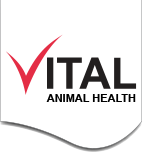
Meat Production
Beef in Kenya is produced primarily in the arid and semi-arid areas. The majority is produced in two main systems: large- scale, commercial ranching, farming Boran and exotic beef cattle, and small- scale production farming primarily small East African zebu as a dairy-beef animal. A significant proportion is also supplied by dairy bull calves and cull cows. Under extensive beef production systems (both large-scale ranching and pastoral herds) the main source of nutrients and energy for livestock is natural forage and browse, growth and sufficiency of which depend on seasonal rainfall.
Beef production also depends upon the health and fast growth of calves and milk production from the dam is a major determinant of calf growth. This is because calves are left to suckle at foot rather than being reared separately on calf starter rations. Whilst milk production in beef cows is at much lower levels than that of dairy cows supplementing protein, energy and mineral levels in these animals has significant impact on both dam health and calf growth. Supplementing mothers' diets to improve their milk production can be especially important in stud breeding herds.

Just like dairy cows, beef cattle have their own specific requirements for minerals in order to reach optimum productive and reproductive goals. In Kenya, research has shown that forages tend to be deficient in most of the minerals considered essential to livestock production. This exacerbates the already relatively difficult conditions, further compromising animal performance. Although some of minerals are present in the feed, levels are inadequate to meets the needs of the animals and supplementation with a formulated mineral such as Vital Nyama is necessary to ensure no deficiencies with their resulting losses occur.

From a 2009 census, there are also an estimated 17 million sheep and 27 million goats in Kenya; they are similar in terms of productive purpose and generally herded together, often along with cattle. The vast majority of ‘shoat’ production occurs in arid and semi-arid areas in pastoral systems. Along with beef and camel meat, mutton and goat constitutes approximately 80% of the meat consumed in these areas. Sheep and goats also provide farmers with milk, wool/hair, hides and manure. Although generally less productive than cattle and whilst shoats are sturdy animals that are well adapted to the harsh conditions they are raised in they still suffer from similar deficiencies as they must support their productivity from the forage they are consuming. Supplementing their mineral needs through feeding Vital Kondoo can therefore show similar benefits to cattle in improving rumen microbial function, improving muscle growth and milk production to support lambs and kids.





